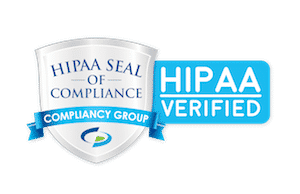
A pediatric eye exam is a necessary assessment of a child’s vision and eye health. It is performed by a pediatric optometrist or ophthalmologist. The brief examination performed during a vision screening is not a substitute for a comprehensive eye examination.
The eye specialists have the necessary expertise, training, and tools to perform the examination. A thorough evaluation of the child’s vision and eyes will help in the detection of any eye issues.
Importance of Eye Examinations
Pediatric eye examinations are crucial in ensuring that your child’s vision and eyes are healthy. If you suspect that your child may be experiencing vision problems, an eye examination is essential. Vision problems can hurt school performance, and they can impact your child’s safety.
For children to learn effectively, they must be able to see clearly at different distances. The child’s eyes must be able to work together to see and focus on their surroundings. Pediatric eye exams evaluate the different skills to ensure proper development.
Signs of Vision Issues in Kids
When performing the eye exam, the eye specialist will be looking for signs of different eye issues. It is important to realize that vision problems are not always apparent. In some cases, such as when a child is born prematurely, the problems might be more obvious.
However, in other cases, eye examinations help in detection. The eyes exams look for signs of delayed motor development. Constant blinking or rubbing the eyes can indicate eye problems. Children with eye-tracking problems may frequently fail to make eye contact.
Conditions Identified During Eye Exams
During the pediatric eye examination, the specialist will look for a number of eye conditions. The conditions include amblyopia or lazy eye, strabismus, where the eyes look in different directions, and myopia. They also look for ptosis, a drooping eyelid that can block the child’s vision.
Some of these conditions can lead to vision loss if left untreated. Early detection will help in developing an effective treatment plan. If your child has difficulty seeing the school board, or if he squints, you need to schedule an eye exam.
When to Start Pediatric Eye Exams
The child should receive the first comprehensive eye exam at six months old. This exam helps ensure that eye development is going on well. The second exam should be done when the child is three years old.
If the eyes are developing well, the next exam should be scheduled when the child starts school at five or six years. A child who does not require vision correction can get eye examinations every two years. If the child requires vision correction, annual exams are needed.
Getting Vision Correction
If a child requires vision correction, the pediatrician will recommend more frequent visits than a child with perfect vision. The child who wears glasses or contacts will need to be checked regularly to determine changes in vision. The doctor may need to change the prescription several times to address the vision change. The examinations will help determine if the correction is working as required.
Pediatric eye exams are an important way to ensure that your child has healthy eyes. Talk to the eye doctor about the best schedule for your child.
To know when to start pediatric eye exams, visit Eye Care North at our office in Cave Creek, Arizona. You can call 480-781-4446 today to book an appointment.





































































































































































































































































